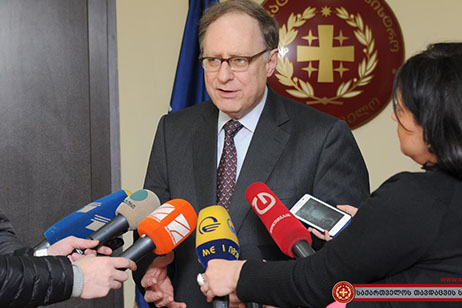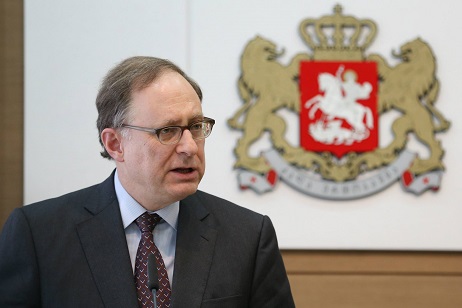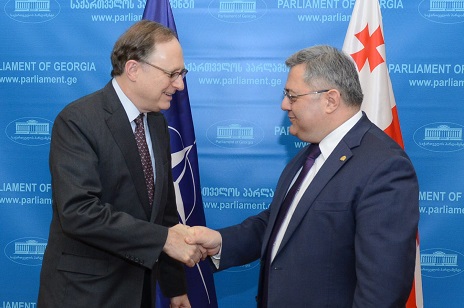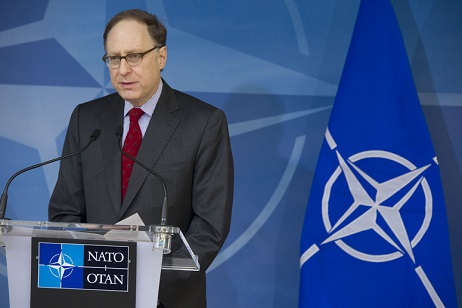NATO: We will help Georgia prepare for future membership
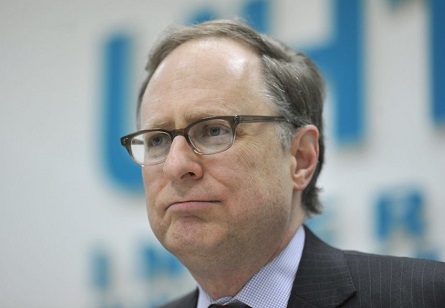
Georgia has chosen leaders who advocate for Euro-Atlantic integration – not Russia’s Eurasian Union, says a top NATO official.
NATO Deputy Secretary General Ambassador Alexander Vershbow spoke at the 2015 Leangkollen Conference in Oslo earlier this week where he spoke about ongoing Russian aggression and NATO's collective defence.
"But in addition to ensuring our collective defence, we must also look beyond our borders,” he said.
Vershbow noted one of the priorities at the Wales Summit was to increase NATO support to its eastern neighbours, especially Ukraine, Georgia and Moldova, "who are the main targets of Russian pressure and interference”.
"Let me add that we don’t see our relations with these countries exclusively through the prism of our relations with Moscow,” he said.
"They are independent countries with internationally recognised borders, who are entitled to pursue their own path. In recent elections, all three countries have chosen leaders and parties that advocate Euro-Atlantic integration – not Russia’s Eurasian Union.”
And he said: "The more stable they are, the more secure we are.”
"So helping Ukraine, Georgia and Moldova – to strengthen their military forces, reform their institutions and modernise their economies – is not an act of generosity; it is in our fundamental strategic interest,” he said.
He confirmed NATO was doing its part to give additional support to these countries. The Alliance's efforts to help Ukraine modernise and reform its armed forces saw the Alliance launch five trust funds to assist in areas like command and control, logistics, cyber defense and military medicine. And NATO was also helping Moldova and Georgia to strengthen their defensive capacity in similar ways and, in Georgia’s case, to help it prepare for future membership in the Alliance.
"But this defence assistance, like economic support, is only one side of the coin,” he said.
"These countries have to keep their commitments to fight corruption, make hard economic decisions, reach out to their minorities, and build efficient, transparent institutions. Only with these reforms can our help be effective.”
 Tweet
Tweet  Share
Share
